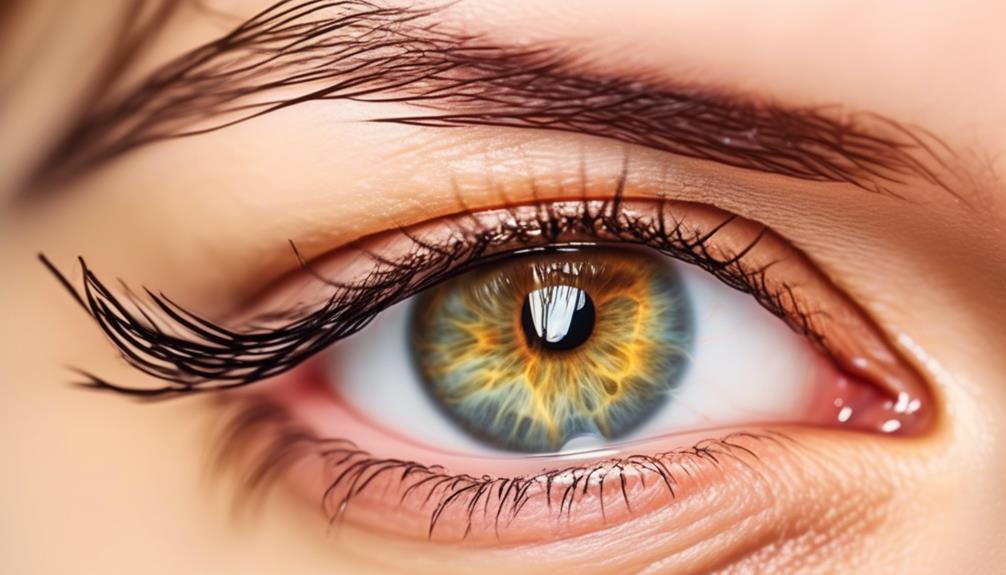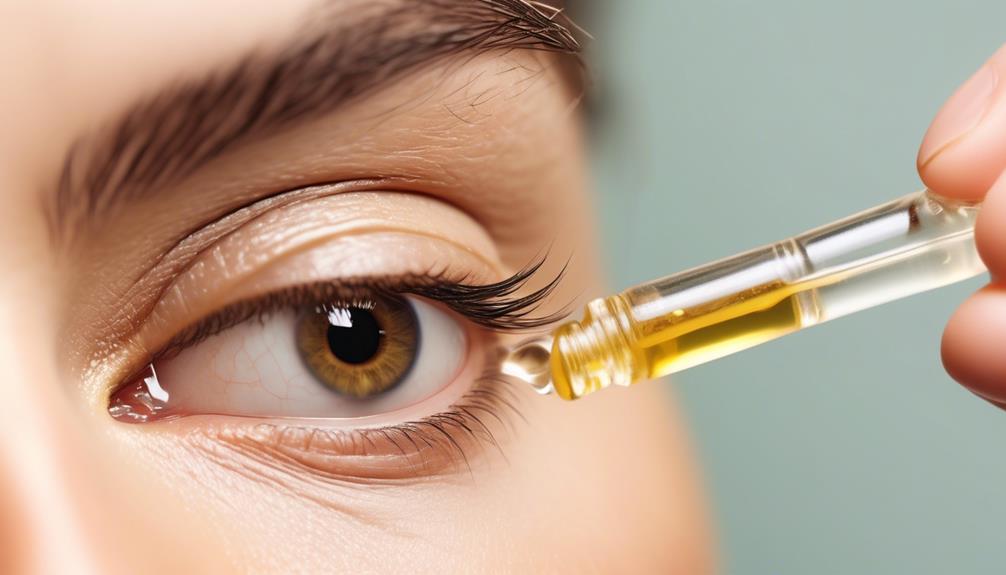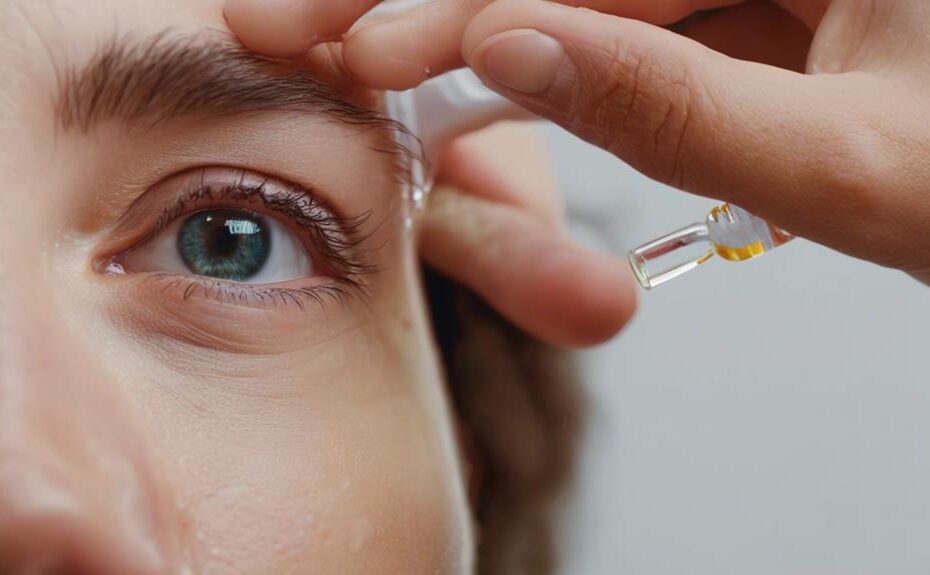Castor oil eye drops have been used for many years as a natural remedy for various eye conditions. They are believed to provide relief from dryness, redness, and irritation. However, it is important to consider the safety profile of castor oil eye drops before using them.
Firstly, castor oil is generally considered safe for external use. It is derived from the seeds of the castor oil plant and has been used in various cosmetic and medicinal products. When used in eye drops, castor oil is typically diluted with other ingredients to ensure its safety and efficacy.
Secondly, castor oil eye drops are not recommended for everyone. Individuals with certain eye conditions, such as glaucoma or cataracts, should avoid using castor oil eye drops unless specifically directed by a healthcare professional. In some cases, castor oil eye drops may worsen these conditions or interfere with other medications.
Thirdly, it is important to choose high-quality castor oil eye drops from reputable brands. This ensures that the product is free from contaminants and meets safety standards. It is also advisable to follow the recommended dosage and usage instructions provided by the manufacturer or healthcare professional.
In conclusion, castor oil eye drops can be safe and effective when used properly. However, it is important to consider individual factors and consult with a healthcare professional before using them.
Key Takeaways
- Castor oil eye drops are generally safe for external use, but individuals with certain eye conditions should avoid using them without consulting a healthcare professional.
- Choosing high-quality castor oil eye drops from reputable brands is important to ensure safety.
- Proper usage and hygiene, including following recommended dosage and storage instructions, are crucial to avoid eye infections.
- Prolonged use of castor oil eye drops may cause blurry vision or temporary decrease in visual acuity, and any allergic symptoms should be reported to a healthcare professional.
Potential Benefits of Castor Oil Eye Drops

Castor oil eye drops may offer several potential benefits for individuals seeking relief from dry, irritated eyes and other related conditions. These drops are known to possess various properties that can help alleviate discomfort and promote overall eye health.
One potential use of castor oil eye drops is in providing relief from dry eyes. The oil acts as a lubricant, helping to moisturize the eyes and reduce the sensation of dryness. This can be particularly beneficial for those who spend long hours in front of screens or in dry environments.
Additionally, castor oil eye drops have been found to be effective in reducing inflammation and irritation. The oil contains ricinoleic acid, which has anti-inflammatory properties. By reducing inflammation, these drops can help alleviate discomfort and redness associated with conditions such as blepharitis and conjunctivitis.
Another potential benefit of castor oil eye drops is their potential to improve tear quality. The oil can help stabilize the tear film, preventing evaporation and promoting better tear production. This can be especially helpful for individuals with Meibomian gland dysfunction, a condition that affects the quality and quantity of tears produced.
While further research is needed to fully understand the effectiveness of castor oil eye drops, initial studies and anecdotal evidence suggest their potential benefits for individuals with dry, irritated eyes and related conditions.
Safety Concerns and Risks of Using Castor Oil Eye Drops
The safety concerns and risks associated with using castor oil eye drops should be carefully considered by individuals considering their use. While castor oil eye drops are generally considered safe when used properly, there are some potential risks and long-term effects that should be taken into account.
One of the main risks associated with castor oil eye drops is the potential for allergic reactions. Some individuals may have an allergic reaction to castor oil, which can cause redness, itching, and swelling of the eyes. It is important to discontinue use if any allergic symptoms occur and seek medical advice.
Another concern is the potential for contamination. If the eye dropper or the bottle of castor oil eye drops becomes contaminated, it can lead to eye infections. Therefore, it is crucial to ensure proper hygiene and storage of the eye drops to minimize the risk of contamination.
Additionally, long-term use of castor oil eye drops may have some effects on the eye. Some studies suggest that prolonged use of castor oil eye drops may cause blurry vision or a temporary decrease in visual acuity. However, more research is needed to fully understand the long-term effects of castor oil eye drops.
Recommended Dosage and Application of Castor Oil Eye Drops

To ensure safe and effective use of castor oil eye drops, it is important to follow the recommended dosage and application guidelines. Proper application of castor oil eye drops involves a few simple steps. First, wash your hands thoroughly with soap and water before handling the eye drops. Then, tilt your head back slightly and pull down your lower eyelid to create a small pocket. With the bottle of eye drops held upside down, squeeze the recommended number of drops into the pocket. Be careful not to touch your eye or eyelid with the dropper tip to avoid contamination. After administering the drops, close your eyes gently and blink a few times to help spread the oil over the surface of your eye. It is generally recommended to use castor oil eye drops once or twice a day, but always follow the instructions provided by your healthcare professional or the product label. Remember to store the eye drops in a cool, dry place and discard them according to the recommended timeframe.
Here is a table summarizing the recommended dosage and application guidelines for castor oil eye drops:
| Dosage | Application |
|---|---|
| 1-2 drops per eye | Tilt head back slightly |
| Pull down lower eyelid | |
| Create small pocket | |
| Squeeze drops into pocket | |
| Close eyes gently and blink | |
| Use once or twice a day | |
| Store in cool, dry place | |
| Discard according to guidelines |
Possible Side Effects of Castor Oil Eye Drops
Possible side effects may occur when using castor oil eye drops, although they are generally rare and mild. It is important to be aware of these potential side effects before using castor oil eye drops to ensure the safety and well-being of your eyes.
One possible side effect of castor oil eye drops is allergic reactions. Some individuals may be allergic to castor oil or other ingredients present in the eye drops. This can manifest as redness, itching, swelling, or a rash around the eyes. If you experience any of these symptoms after using castor oil eye drops, it is advisable to discontinue use and consult with an eye care professional.
While castor oil eye drops are generally considered safe for short-term use, there is limited information available about their potential long-term effects. It is always recommended to follow the instructions provided by the manufacturer and consult with a healthcare professional if you have any concerns about prolonged use.
Alternative Options for Treating Eye Conditions

When exploring alternative options for treating eye conditions, it is important to consider different approaches that can provide relief and support eye health. Herbal remedies for eye conditions have been used for centuries and can offer a natural alternative with potentially fewer side effects than traditional medications.
Popular herbs for eye health include bilberry, which is rich in antioxidants and may help improve night vision and reduce eye fatigue. Another herb, eyebright, has been used to relieve eye symptoms such as redness, itching, and inflammation. Additionally, ginkgo biloba may improve blood flow to the eyes and help protect against age-related macular degeneration.
Natural supplements can also be beneficial for improving eye health. Omega-3 fatty acids, found in fish oil or flaxseed oil, can reduce dry eye symptoms and may help prevent age-related vision loss. Vitamin C and vitamin E, both powerful antioxidants, can protect the eyes from oxidative damage. Lutein and zeaxanthin, found in leafy greens and eggs, are important for maintaining healthy vision and may reduce the risk of developing cataracts and macular degeneration.
When considering alternative options for treating eye conditions, it is recommended to consult with a healthcare professional or eye specialist to determine the most appropriate treatment plan for your specific condition.
Frequently Asked Questions
Can Castor Oil Eye Drops Be Used as a Long-Term Treatment for Chronic Eye Conditions?
Castor oil eye drops have been used as a long-term treatment for chronic eye conditions due to their perceived effectiveness. However, potential side effects, such as irritation and blurred vision, should be considered before prolonged use.
Are Castor Oil Eye Drops Safe for Use in Children and Infants?
Castor oil eye drops have been found to be generally safe for use in children and infants. However, it is important to note that potential side effects and efficacy in treating eye infections may vary.
Can Castor Oil Eye Drops Be Used to Improve Vision or Treat Refractive Errors?
Castor oil eye drops have been suggested to improve vision naturally and treat refractive errors, but their effectiveness is still inconclusive. It is important to consult with an eye care professional before using them.
Are There Any Known Drug Interactions With Castor Oil Eye Drops?
Drug interactions with castor oil eye drops are a potential concern. It is important to consult with a healthcare professional or pharmacist to ensure the safe use of these eye drops in conjunction with any other medications.
Can Castor Oil Eye Drops Be Used in Conjunction With Contact Lenses?
Using castor oil eye drops with contact lenses may not be recommended, as the oil can potentially cause buildup on the lenses. It is advisable to consult with an eye care professional before using them in conjunction with lenses.
Conclusion: Are Castor Oil Eye Drops Safe
In conclusion, while castor oil eye drops may offer potential benefits for certain eye conditions, it is important to consider the safety concerns and risks associated with their use.
It is recommended to follow the appropriate dosage and application guidelines to minimize the risk of side effects.
Additionally, alternative options for treating eye conditions should also be explored to ensure the best possible outcome for individuals seeking relief.





